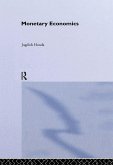Japanese Economic Development presents three distinct approaches to understanding how and why Japan made the transition from a relatively low-income country mainly focused on agriculture to a high-income nation centered on manufacturing and services. In offering an eclectic account of Japan's economic development, this book appeals to students in a broad group of disciplines including economics, political science, sociology, geography and history. The book makes a case for 'over determination' in economic behavior. Because individual, firm level, and governmental behavior is simultaneously determined by the interaction of markets, norms, and structures, change over time is rarely if ever limited to the economy operating in isolation from social norms and structures.
Hinweis: Dieser Artikel kann nur an eine deutsche Lieferadresse ausgeliefert werden.
Hinweis: Dieser Artikel kann nur an eine deutsche Lieferadresse ausgeliefert werden.








